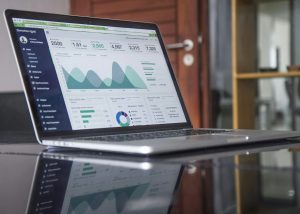The Debt Collection Process in Europe can be a challenging landscape for manufacturers to navigate. With varying laws and regulations across different countries, it’s vital to understand the intricacies of the process to recover outstanding debts effectively. This guide provides manufacturers with a comprehensive overview of the debt collection process in Europe, highlighting the three-phase recovery system, financial considerations, legal frameworks, and the selection of the right debt collection agency.
Key Takeaways
- Manufacturers must understand the three-phase recovery system in Europe, which includes immediate actions, local attorney involvement, and potential litigation.
- Financial considerations are crucial, including understanding collection rates and fees, and evaluating the cost-benefit of legal action, especially for accounts of varying ages and values.
- The European Late Payment Directive and consumer protection laws play significant roles in the debt collection process, ensuring creditor rights while respecting debtor rights.
- Choosing the right debt collection agency is essential for success, with factors such as agency expertise, coverage area, and success rates being key selection criteria.
- Debitura stands out as a trusted authority in international debt collection, offering comprehensive services and expert advice tailored to the manufacturer’s needs.
Understanding the Debt Collection Process in Europe
Initial Steps and Immediate Actions
The journey to reclaiming debts begins with pre-enforcement actions, setting the stage for a structured collection process. Before diving into legalities, it’s crucial to exhaust all avenues for an amicable solution. This approach not only maintains business relations but often leads to swifter, more economical outcomes.
- Step 1: Engage with the debtor to negotiate a resolution.
- Step 2: Gather all pertinent documents and evidence.
Should negotiations falter, the path to judicial collection emerges. Courts may view premature legal action without prior negotiation attempts unfavorably. Accurate documentation is the bedrock of a successful claim, underscoring the importance of thorough preparation.
The initial phase is a delicate balance between firm action and diplomatic negotiation, aiming for resolution without burning bridges.
Skip-Tracing and Debtor Investigation
Once initial contact attempts fail, the focus shifts to skip-tracing and debtor investigation. Locating a missing debtor is crucial to the recovery process. This phase involves deploying various tools and techniques to uncover the debtor’s whereabouts and assess their financial status.
- Utilize online databases and public records to track down the debtor.
- Engage professional investigators when necessary.
- Analyze the debtor’s financial health to gauge recovery prospects.
Proactive investigation can significantly increase the likelihood of successful debt recovery.
It’s essential to act swiftly and efficiently, as time is often a critical factor in debt collection. The goal is to gather enough information to make informed decisions on how to proceed with the recovery efforts.
Communication Strategies and Legal Notices
Effective communication is the linchpin of successful debt recovery. Clear, consistent, and professional dialogue with debtors can pave the way for amicable solutions. It’s essential to maintain a balance between firmness and respect for consumer rights, adhering to the legal frameworks of European countries.
Avoid aggressive tactics that could backfire legally or damage your reputation. Instead, focus on structured communication, such as demand letters, which serve as formal notices and are crucial should the case escalate to legal proceedings.
Documentation of all interactions is crucial. It not only demonstrates compliance with legal standards but also fortifies your position in potential legal disputes.
Remember, the goal is to resolve the debt while preserving the relationship with the debtor whenever possible. Here are some key points to consider:
- Respect debtor rights under EU laws.
- Utilize legal professionals for assertive communication.
- Document every step of the communication process.
- Prepare demand letters in accordance with local laws.
- Consider legal action as a last resort, evaluating the cost and likelihood of recovery.
Navigating the Three-Phase Recovery System
Phase One: Contact and Resolution Attempts
The initial phase of debt recovery is critical. It sets the tone for the entire collection process and aims for a swift, amicable solution. Here’s what it involves:
- Direct Communication: Engage with the debtor to understand the reasons behind the payment delay.
- Payment Reminders: Employ various channels like email, SMS, and letters to send reminders.
- Formal Notice: Issue a formal notice, making the consequences of non-payment clear.
Maintaining a professional tone during these communications is essential. It preserves the relationship and opens the door to cooperation. If these attempts don’t yield results, the process escalates to the next phase.
The goal is to resolve the debt without legal action, balancing the costs and potential recovery.
Remember, choosing the right agency is crucial for recovery success. The debt collection process involves negotiation and, as a last resort, legal escalation.
Phase Two: Involvement of Local Attorneys
When amicable resolution efforts falter, the involvement of local attorneys marks a pivotal shift in the debt collection process. Legal expertise becomes the spearhead of recovery efforts, ensuring that every action aligns with local laws and regulations. Attorneys swiftly initiate contact, leveraging the weight of legal letterhead to underscore the seriousness of the situation.
The attorney’s role extends beyond mere correspondence; they are instrumental in orchestrating a strategic approach to debt recovery.
Local attorneys bring to the table a suite of benefits:
- Verified Lawyers: Access to a network of vetted professionals ensures reliable representation.
- Competitive Rates: Fair, negotiated pricing for quality legal services.
- Strategic Communication: Expert handling of complex debtor negotiations.
Upon engaging an attorney, manufacturers can expect a structured approach:
- Drafting and dispatching demand letters.
- Persistent debtor contact through calls and written notices.
- Preparation for potential litigation, including evidence and witness statements.
The decision to escalate to legal action is not taken lightly. It involves a careful assessment of the debtor’s financial situation and the likelihood of successful recovery. Should the case advance to litigation, manufacturers are apprised of the associated costs and recommended course of action.
Phase Three: Litigation and Case Closure Options
When the debt recovery process reaches Phase Three, manufacturers face a critical juncture. Decisions made here will significantly impact the financial outcome. If a thorough investigation suggests low recovery prospects, case closure is advised, sparing further costs. Conversely, choosing litigation necessitates upfront legal fees, with no guarantee of success but the potential for full debt retrieval.
Creditors must weigh the risks and costs of litigation against the debt’s value. A default judgment may result if the debtor fails to respond, often favoring the creditor. However, post-judgment, debtors can oppose or appeal, prolonging the process. Should the court rule in favor of the creditor, payment or asset liquidation may follow, with proceeds distributed accordingly.
The final phase is not just about legal proceedings; it’s about strategic financial decisions and the readiness to either secure recovery or cut losses.
Manufacturers must consult with legal representatives to navigate the complexities of this phase, ensuring all actions align with the court’s expectations and legal standards.
Financial Considerations for Manufacturers
Understanding Collection Rates and Fees
When venturing into the realm of debt collection, manufacturers must grasp the intricacies of collection rates and fees. Knowing the cost structure is essential for effective financial management and decision-making. Here’s a snapshot of typical fees during the reminder and amicable collection phase:
| Fee Type | Individual Consumers | Businesses |
|---|---|---|
| Late Payment Reminder Fee | 60 SEK | 60 SEK |
| Debt Collection Demand | 180 SEK | 180 SEK |
| Annual Base Fee for Execution | 600 SEK | 600 SEK |
| Application Fee for Claim | 300 SEK | 300 SEK |
Fees may vary based on additional actions required during the collection process and are subject to regulatory frameworks that ensure fairness.
Manufacturers should also be aware that collection costs can escalate if the case progresses to litigation. Anticipating these expenses and understanding the potential return on investment is crucial when deciding whether to pursue legal action. Collection agencies often operate on a contingency basis, charging a percentage of the amount recovered. This rate can differ depending on the age and value of the accounts, as well as the volume of claims.
Evaluating the Cost-Benefit of Legal Action
Before diving into the legal fray, manufacturers must assess the potential ROI of legal action. This involves a clear-eyed analysis of the estimated recovery amount versus the total expected costs, which include court fees, attorney’s fees, and potential enforcement costs. Use the simple formula to guide your decision:
ROI = (Estimated Recovery Amount – Total Costs) / Total Costs \ imes 100%
- Assess the debt amount to determine jurisdiction.
- Identify the debtor’s domicile for correct territorial jurisdiction.
- Consider specialized courts for specific legal areas.
The decision to pursue legal action should not be taken lightly. It’s crucial to weigh both direct costs and the potential impact on your business’s resources and reputation. Debitura’s insights can provide valuable guidance in this assessment. Remember, the operating cost of road includes toll collection cost; traffic management of the new section will be done without additional expenses, reflecting the importance of efficient cost management in debt recovery.
Managing Accounts of Varying Ages and Values
Manufacturers must adeptly manage accounts receivable to maintain a healthy cash flow. Different strategies are required for accounts of varying ages and values. For newer accounts, swift and consistent follow-up is key. As accounts age, the likelihood of collection diminishes, necessitating a more aggressive approach or even legal intervention.
Accounts under 1 year: Aim for quick resolution; higher recovery rate expected.
Accounts over 1 year: Consider intensified collection efforts or legal action; recovery becomes more challenging.
Small-value accounts: Evaluate if the cost of recovery outweighs the potential return.
The accounts receivable turnover ratio is one metric to watch closely as it measures how effectively a company is handling collections. A lower ratio may indicate that it’s time to reassess collection strategies or to write off certain debts to focus on more promising accounts.
It’s crucial to balance the cost of collection efforts with the potential recovery. Manufacturers should regularly review their accounts receivable to determine the most cost-effective approach for each account.
Legal Framework and Consumer Protection
The European Late Payment Directive
The European Late Payment Directive is a cornerstone in the fight against delayed payments within the EU. It establishes a legal right for businesses to charge interest on late payments, creating a more level playing field, particularly for manufacturers with cross-border transactions.
Key provisions include:
- Payment deadlines: Business-to-business (B2B) payments must be made within 60 days, unless otherwise agreed upon.
- Statutory interest: Creditors can charge interest if payments are late, encouraging prompt settlement.
- Recovery costs: Creditors are entitled to compensation for recovery costs, reducing the financial burden of chasing debts.
The directive’s impact is significant, offering a structured approach to safeguard creditors’ interests and ensuring a uniform practice across member states.
Manufacturers must be aware of the directive’s implications to effectively manage their receivables and maintain healthy cash flows. The directive serves not only as a protective measure but also as a deterrent against late payments, promoting a culture of timely settlements.
Consumer Protection Laws and Debtor Rights
In Europe, consumer protection is paramount, especially in the context of debt collection. Consumer rights are vigorously defended, ensuring that collection practices are fair and respectful. The Consumer Protection Code prohibits harassment and undue pressure, setting a clear legal boundary for collectors.
- Debt collection agencies must adhere to strict regulations.
- Abusive practices are strictly prohibited.
- Legal action is a last resort, following exhaustive non-judicial measures.
Consumer protection laws serve as a shield, safeguarding debtors from overzealous collection tactics.
When legal action is necessary, it’s crucial that it aligns with consumer rights. Agencies and attorneys navigate these waters with a deep understanding of the legal framework, including the Consumer Protection Code, to ensure that both creditor and debtor are treated justly.
The Role of Small Claims Court in Debt Recovery
Small Claims Courts offer a streamlined, cost-effective solution for manufacturers seeking to recover debts. Claims below €5,000 are typically handled in this less formal setting, providing a swifter resolution than traditional courts. The process is designed to be accessible, allowing creditors to either self-represent or engage legal professionals.
Legal Representation Options:
- Self-representation to minimize costs
- Hiring legal professionals for guidance
Debtors are notified of claims and are given the opportunity to respond, ensuring their rights are protected. Once a judgment is made, enforcement actions such as asset seizure can be initiated.
The simplicity of the Small Claims Court can be a powerful tool for manufacturers, enabling efficient debt recovery without the need for extensive legal resources.
Choosing the Right Debt Collection Agency
Criteria for Selecting a Collection Partner
Selecting the right debt collection agency is a pivotal decision for manufacturers looking to recover outstanding debts. Experience and expertise in the field are non-negotiable; a seasoned agency will navigate the complexities of cross-border collections with finesse. Look for agencies with a proven track record in your industry and a deep understanding of the local legal landscape.
- Reputation: A reputable agency upholds ethical standards and maintains positive client relationships.
- Communication: Fluent in debtor’s language and adept at cultural nuances to ensure clear dialogue.
- Resources: Adequate resources for skip-tracing and investigation to locate debtors efficiently.
- Transparency: Clear fee structures and reporting systems to keep you informed at every stage.
When it comes to debt collection, aligning with an agency that mirrors your company’s values and commitment to professionalism is essential. The right partner not only recovers debts but also preserves your business relationships.
Finally, consider the agency’s success rate and client testimonials. These insights can be indicative of their effectiveness and reliability in securing payments. Remember, the goal is not just to collect a debt but to do so while maintaining the integrity of your brand.
Top Debt Collection Agencies in Europe
Selecting a top-tier debt collection agency is crucial for manufacturers looking to recover outstanding debts across Europe. BoldData’s list of the Top 50 largest Debt Collection Agencies provides a comprehensive overview of industry leaders, including CERVED GROUP SPA in Italy and INTRUM SERVICING SPAIN SAU in Spain.
European manufacturers can choose from a plethora of agencies, each with a unique set of skills and regional expertise. Here’s a snapshot of countries with notable agencies:
- Debt Collection Agency Germany
- Debt Collection Agency Greece
- Debt Collection Agency Hungary
- Debt Collection Agency Malta
- Debt Collection Agency Netherlands
- Debt Collection Agency Poland
When it comes to debt recovery, the right partnership can make all the difference. A reputable agency not only enhances the likelihood of successful collection but also ensures that the process adheres to local laws and respects debtor rights.
It’s essential to consider the specific needs of your business and the nature of the debts you’re looking to collect. Agencies often specialize in different types of debt, from commercial to consumer, and may offer additional services such as skip-tracing, legal representation, and international debt recovery.
Debitura’s Expertise in International Debt Collection
Debitura stands as a beacon of proven expertise in the realm of international debt collection. With a focus on precision and impartiality, our team brings over a decade of experience to the table, ensuring that your unpaid invoices are recovered efficiently and ethically.
Our approach is tailored to the unique legal and cultural landscapes of each European country, from Portugal to Sweden, guaranteeing a smooth recovery process. We offer comprehensive services, including demand letters, legal proceedings, and enforcement of judgments, all while navigating jurisdictional complexities.
Our three-phase Recovery System is designed to maximize recovery rates while minimizing your involvement and stress.
We understand the financial implications of debt collection and provide competitive rates that reflect the age and value of accounts. Our commitment to your success is unwavering, as we strive to recover your funds with the utmost respect for debtor rights and legal frameworks.
Navigating the complexities of debt recovery can be challenging, but choosing the right debt collection agency is crucial for your business’s financial health. At Manufacturing Debt Collections, we specialize in fast and effective B2B collections, boasting a 96% success rate in the manufacturing industry. Don’t let unpaid debts disrupt your cash flow. Visit our website to learn more about our services and how we can help you get paid in 34 days or less. Take the first step towards securing your revenue by clicking here.
Conclusion
Navigating the debt collection process in Europe requires a comprehensive understanding of the various stages involved and the legal frameworks that govern them. Manufacturers, especially those new to the process, must be aware of the three-phase recovery system that includes initial contact and negotiation, legal escalation, and potential litigation. It is essential to consider the costs associated with each phase and the rates charged by collection agencies. Moreover, the European Late Payment Directive provides a regulatory backdrop that supports the rights of creditors. With the help of specialized agencies like Debitura, which offer expertise across different European jurisdictions, manufacturers can approach debt collection with greater confidence and efficiency. Ultimately, patience and professional support are key to successfully managing international collections and safeguarding business interests.
Frequently Asked Questions
What are the phases of the debt collection process in Europe?
The debt collection process in Europe typically consists of three phases: Phase One involves initial contact and resolution attempts, including skip-tracing and sending legal notices. Phase Two includes the involvement of local attorneys who send additional letters and make phone calls. If these attempts fail, Phase Three may involve litigation and case closure options.
How quickly does the debt collection process start after placing an account?
Within 24 hours of placing an account, the debt collection process begins with the first of four letters sent to the debtor, skip-tracing, and investigation, followed by attempts to contact the debtor to resolve the matter.
What happens if the debtor does not respond to initial collection attempts?
If the debtor does not respond to initial collection attempts during Phase One, the case is escalated to Phase Two, where a local attorney within the debtor’s jurisdiction takes over, sending legal letters and attempting to make contact.
What are the typical fees associated with debt collection services?
Debt collection fees vary depending on several factors, including the age and value of the account and the number of claims submitted. For example, accounts under 1 year in age can have a fee of 30% of the amount collected, while accounts over a year old might be charged 40%. Fees for accounts placed with an attorney are typically around 50% of the amount collected.
What should I consider when choosing a debt collection agency in Europe?
When choosing a debt collection agency, consider factors such as their success rate, expertise in international debt collection, knowledge of local laws and consumer protection, and their ability to provide comprehensive recovery services across different countries.
How does the European Late Payment Directive affect debt collection?
The European Late Payment Directive allows creditors to charge interest on delayed payments, which strengthens the rights of creditors and provides a legal framework to penalize late payments, thereby supporting the debt collection process.





